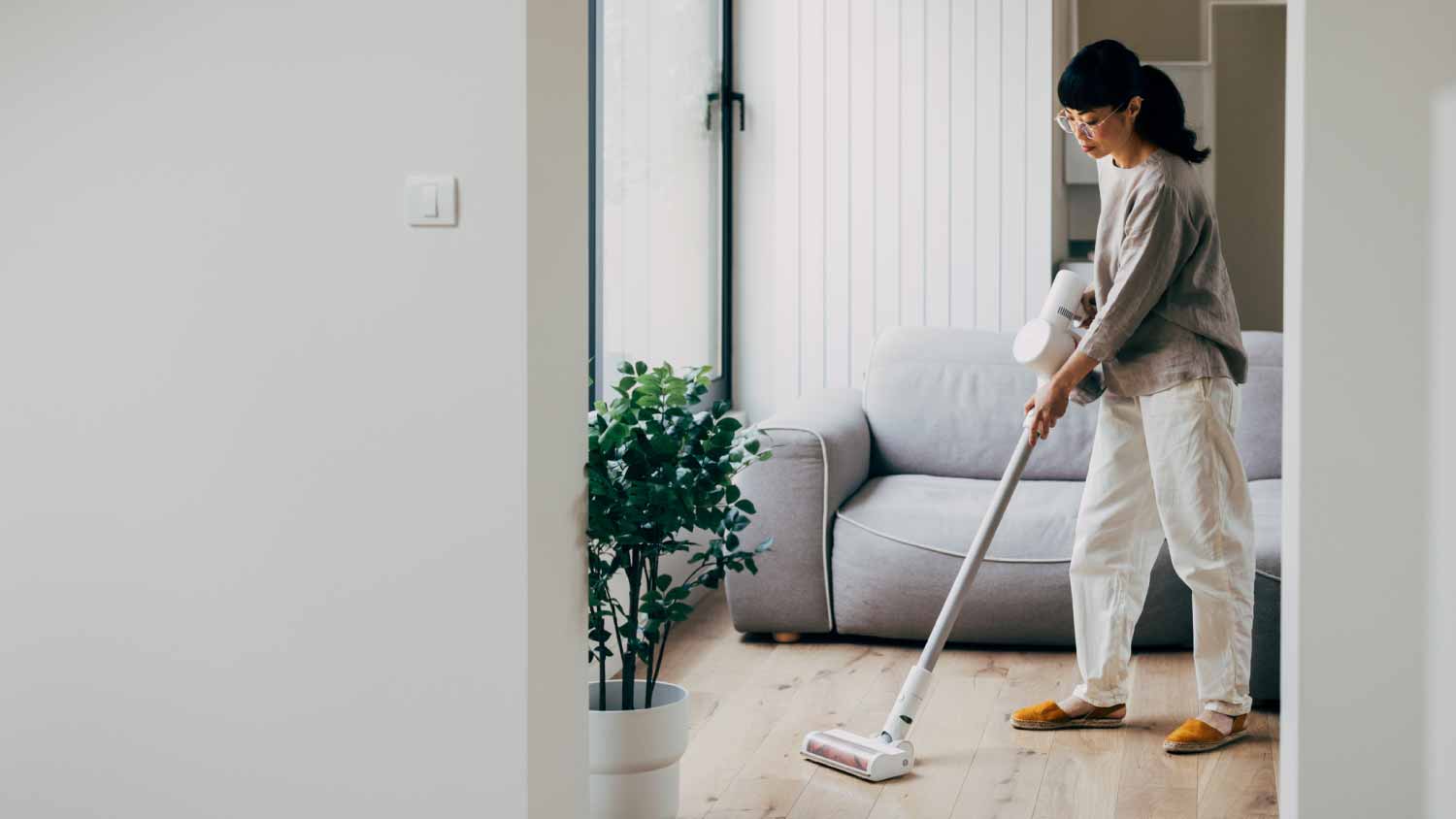
Clean walls are an important part of a well-kept house. Use this wall cleaning cost guide to see what it would cost to hire a professional to get the job done.
When life hands you lemons, use them to spruce up your favorite white t-shirt


Most people enjoy a cold glass of lemonade on a warm summer day. As it turns out, so does your laundry! Lemon isn’t just a great household cleaner; it’s also a powerful stain remover and a great alternative to sodium hypochlorite bleach—the type of chlorine bleach most people throw into their laundry. So, how does it work?
Washing white clothes with lemon juice brightens the fabric because lemons contain high levels of citric acid, which naturally breaks down stains. Unlike chlorine bleach, it’s gentle on fabric and considered color-safe when diluted.
If you’re unsure how to start using lemons in the laundry room, follow these tips to keep your whites white with lemon juice.
Stain removers like hydrogen peroxide, vinegar, and lemon can bleach colored fabrics if they sit on clothes undiluted. To use lemon safely and avoid damaging fabrics:
Do a spot test before directly applying lemon juice to a stain.
Don’t use undiluted lemon juice on colored fabrics.
Never mix lemon juice with chlorine bleach because it can create harmful gases.

You can use lemon juice in place of chlorine bleach (for whites) or oxygen bleach and hydrogen peroxide (for colors). All you have to do is:
Add a quarter-up cup to a half-cup of lemon juice to your load of laundry
Add your usual amount of laundry detergent
Wash your load on your regular washing machine cycle
This method should work to brighten everything from white clothes to white bedsheets. If you're out of lemon juice, try making the same solution with white vinegar.
Sometimes your whites have gotten so dingy that they’re almost gray—especially if you’ve accidentally washed your favorite white shirt with a pair of blue jeans. Since these stains can be stubborn, a lemon juice soak will give you extra oomph. Simply:
Mix a third-cup of lemon juice with two-thirds of a cup of boiled water.
Soak white clothes in the solution overnight (or a minimum of 40 minutes).
Machine wash as usual.
You can also use the same method with distilled vinegar if you don’t have a lemon handy.
If your white clothes have fallen victim to an errant splash of pasta sauce, use a baking soda and lemon juice spot treatment. This method is particularly effective at removing sweat stains. Simply:
Cut a lemon in half.
Cover the stain with 1 tablespoon of baking soda.
Rub the lemon over the baking soda, working the juice into the fabric.
Let the treatment sit for 15 minutes.
Rinse with warm water.
You can also make a paste and apply that directly. Since undiluted lemon juice can bleach clothing, only use this treatment on white clothing. For everything else, spot check.
Bleach is one of the strongest household stain removers, but it won’t work on removing rust stains. In fact, it actually helps rust hold onto fabric. Instead, let lemon juice come to the rescue:
Boil water in a kettle or pot.
Saturate the rust stain with lemon juice.
Hold the stained area over the steam for a few minutes to loosen the rust.
Wash normally with your regular laundry detergent.
Note: Use caution here, as steam can get pretty hot. Wear protective gloves and long sleeves and keep a safe distance.
Mold and mildew happen, especially when you leave towels or linens in a humid bathroom, attic, or basement closet. To bust mold stains on fabric, use a lemon and salt spot treatment.
Make a paste by adding lemon juice to a couple of teaspoons of salt.
Apply the paste to the stain.
Let it dry outside in direct sunlight.
Wash the garment in hot water with your regular detergent.
Washing white clothes with lemon juice and salt won’t just remove discoloration—UV light and hot water are a lethal combination for pesky mold spores. Plus, air drying saves you money on laundry.
From average costs to expert advice, get all the answers you need to get your job done.

Clean walls are an important part of a well-kept house. Use this wall cleaning cost guide to see what it would cost to hire a professional to get the job done.

Cleaning your washing machine semi-regularly is important to your machine’s efficiency. Learn how to sanitize and disinfect a washing machine with bleach.

Mattresses can trap dust mites, sweat, and dirt. Learn how to clean a mattress to reduce allergens and extend the life of your mattress.

How often should you deep clean your house? Learn what timing factors to consider before deep cleaning your home.

Not sure the benefits of a housekeeper vs a house cleaner? Learn which pro you should hire to help keep your home clean.

Deep cleaning a house? Find out how long the process takes—plus tips to maintain a deep clean.